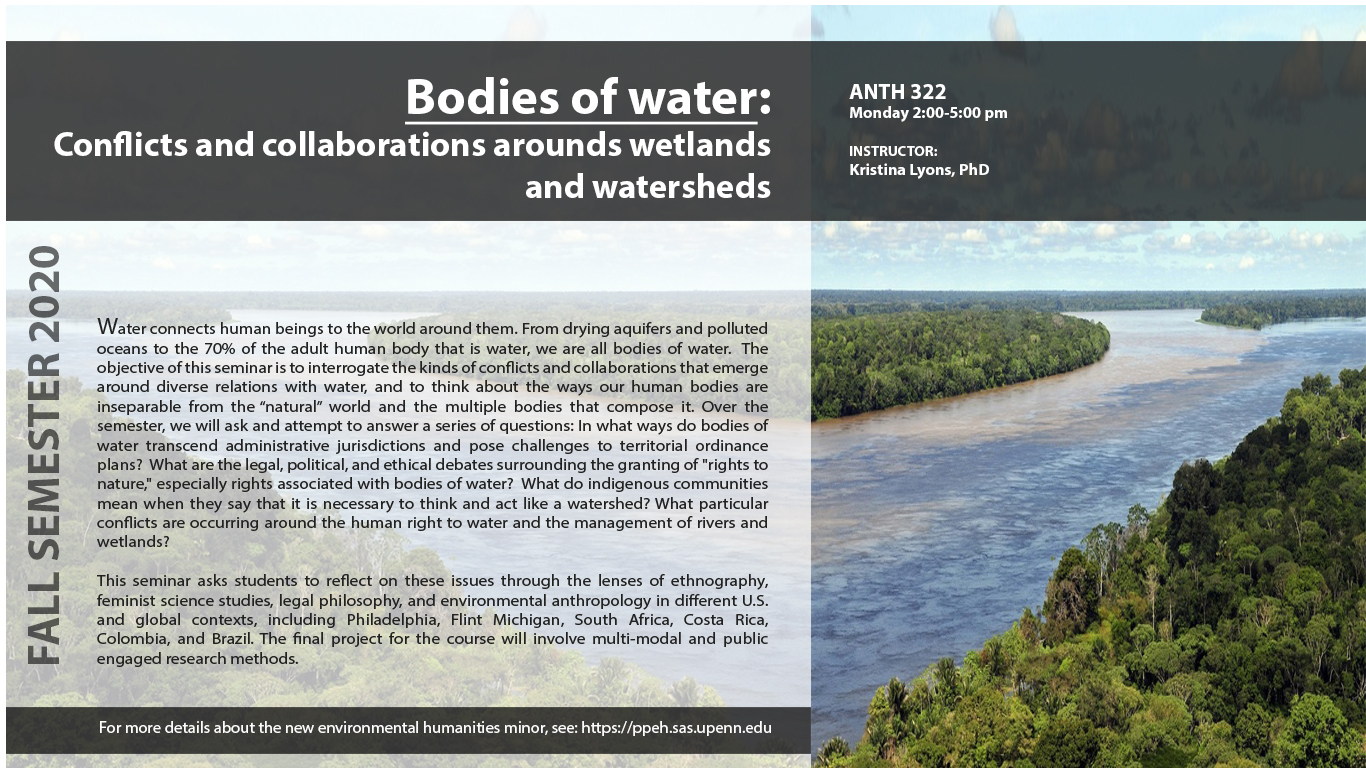Bodies of Water: Conflicts and Collaborations Around Rivers, Wetlands, and Watersheds
ANTH 322-301
Kristina Lyons
Monday 2:00 - 5:00 PM
In less than half a decade, the idea that "nature" possesses inalienable rights akin to human rights has gone from a strictly theoretical concept to the basis of policy changes in several countries and U.S. municipalities. This seminar will introduce students to current legal, political, ethical, and practical debates about the implementation and impacts of granting "rights to nature" in these different contexts with a particular focus on the rights associated with bodies of water. We will begin by examining how the Community Environmental Legal Defense Fund (CELDF) supported citizens of Tamaqua, Pennsylvania to write the world's first local "rights of nature" ordinance. We will then go on to compare the politics of "rights of nature" cases in Ecuador, New Zealand, India, and Colombia paying special attention to the cases of rivers. We will focus on the ways biocentric constitutional moves may transform concepts and understandings of environmental justice and socio-environmental conflicts. In particular, how the recognition of "nature" as a victim of war may transform understandings of violence, and hence, approaches to constructing peace and engaging and reparative and restorative practices within the larger framework of planetary and community efforts to mitigate climate change, deforestation, and the degradation of watersheds and wetlands. Lastly, we will explore the possibilities and tensions between community decision-making, the "rights of nature," and national level policies regarding the intensification of extractive activities and questions of territorial ordinance as they relate to mulitiple bodies of water.
This course fulfills the EH Minor Requirement in Social Science Approaches to Environmental Inquiry. See the full minor requirements list.

